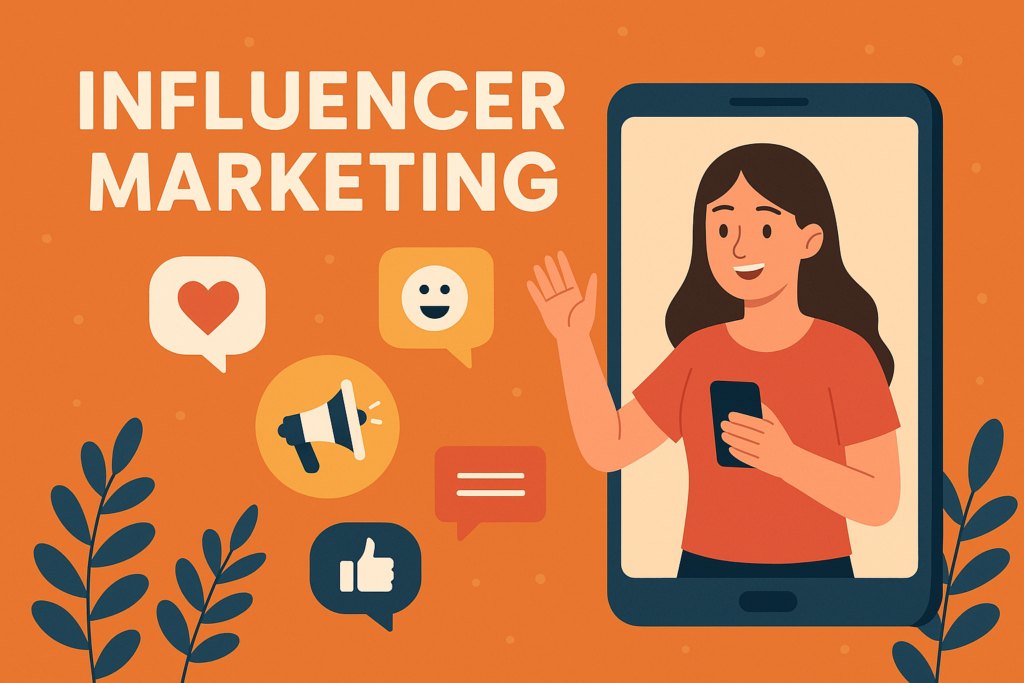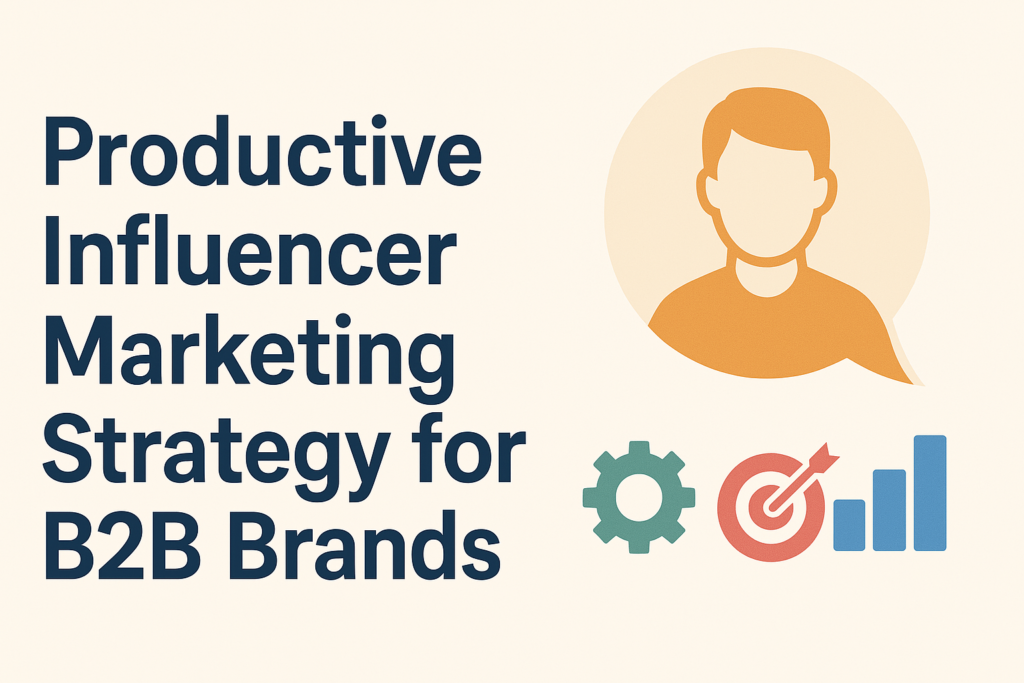The Powerful Truth About Influencer Marketing for B2B Brands: Does It Really Work?
Influencer marketing for B2B Brands has become one of the most extensively elaborate strategies for brands attempting to overhaul their detectable quality, partner with anticipated customers, and drive business advancement. While numerous people accomplice influencer marketing with B2C (business-to-purchaser) associations, the thought is correspondingly pertinent for B2B (business-to-business) brands. However, the usage of influencer marketing for B2B brands is much of the time met with doubt. In light of everything, the components of B2B marketing contrast essentially from B2C marketing. With everything taken into account, is influencer marketing effective for B2B brands? The short reaction is to be sure, however with a nuanced approach.
Getting a handle on the Difference Some place in the scope of B2B and B2C Influencer Marketing for B2B Brands
The key differentiation some place in the scope of B2B and B2C marketing lies in the target audience and the powerful cycle. In B2C marketing, associations are overall endeavoring to engage a wide audience of individual buyers, habitually through emotional or hopeful solicitations. The goal is to engage people who will make fast purchasing decisions considering personal necessities, needs, or tendencies.

On the other hand, Influencer Marketing for B2B Brands focuses on showing up at pioneers in various businesses, similar to bosses, managers, or acquisition authorities. The buying framework is a significant part of the time longer and more sensible, including various partners. All things considered, B2B purchasing decisions are driven by factors like cost-effectiveness, productivity, and long-term regard.
With respect to Influencer Marketing for B2B Brands space, the approach ought to be accustomed to reflect the more sensible and capable necessities of the audience. Instead of raising a product directly to purchasers, the focus developments to building trust and spreading out master in the business. Influencers in the B2B space typically offer fitness, thought organization, and insights that resonate with business specialists.
How Influencer Marketing Can Help B2B Brands
Notwithstanding the differentiations some place in the scope of B2B and B2C marketing, there are numerous ways Influencer Marketing for B2B Brands can be extraordinarily effective for B2B brands. As an issue of some significance, influencers in the B2B world are experts who can help a brand with spreading out credibility and authority inside its strength. By uniting with individuals who are respected and trusted inside the business, B2B brands can uphold their detectable quality and position themselves as trailblazers in their field.
Also, influencers can help B2B brands build an association of connections. In the B2B space, verbal trade and recommendations oftentimes convey more weight than traditional advertising. When an influencer acclaims a brand, it can open approaches to new business open entryways and collaborations. Influencers can defeat any boundary among brands and potential partners, suppliers, or clients, making it more clear for B2B associations to expand their association.

Moreover, Influencer Marketing for B2B Brands can help with refining a B2B brand. In the business world, associations are a large part of the time seen as unknown substances focused on benefits rather than people. However, influencers convey a personal touch to the brand, making it really fascinating and friendly. Through authentic and insightful content, influencers can showcase the human side of a brand, displaying its characteristics, vision, and commitment to its customers. This, along these lines, can encourage more grounded relationships with likely clients.
In conclusion, Influencer Marketing for B2B Brands can be a powerful tool for content creation. Influencers regularly produce incredible content that reverberates with their audience. By collaborating with influencers, B2B brands can leverage this content for their own marketing attempts. Whether it’s blog sections, videos, online courses, or social media content, the content made by influencers can be reused to drive engagement and addition brand awareness.
How to Perceive the Right Influencers for Your B2B Brand
For influencer marketing to be effective in the B2B space, it’s huge for brands to recognize the right influencers. The influencers picked should have authority and a strong remaining in the business, as well as an audience that lines up with the target market. Not at all like B2C influencer marketing, where enthusiast count is commonly a key estimation, B2B influencer marketing puts more importance on the idea of the influencer’s audience and their level of dominance.
One strategy for recognizing proper Influencer Marketing for B2B Brands is via searching for individuals who are thought trailblazers or experts inside the business. These influencers typically have a following of business specialists who trust their insights and recommendations. Moreover, B2B brands can search out influencers who reliably make content around topics that line up with their product or organization offering. For instance, a product association could search for influencers who focus on advancement, digital change, or industry-express turns of events.

Another huge factor to consider while picking influencers is their level of engagement with their audience. While tremendous follower counts could have all the earmarks of being connecting with, engagement rates and the idea of interactions matter more in the B2B space. An influencer with a smaller yet uncommonly engaged audience of bosses and specialists may be a higher priority than one with countless followers who are less disposed to be relevant to the brand’s target market.
In Influencer Marketing for B2B Brands, the association between the brand and influencer should be established on trust and shared respect. Not the slightest bit like B2C influencers, who could focus on propelling a product or organization through upheld posts or supports, B2B influencers are commonly more placed assets into long-term relationships with the brand. They could partake in online classes, make instructive content, or collaborate on logical examinations that showcase the brand’s fitness and accomplishment.
Making a Productive Influencer Marketing Strategy for B2B Brands
Making a productive influencer marketing strategy for B2B brands requires a smart and strategic technique. Not by any stretch like B2C campaigns, where the focus may be on immediate sales or awareness, B2B campaigns should focus on building relationships and offering some motivation over the long term.
In any case, it’s essential for B2B brands to portray clear goals for their Influencer Marketing for B2B Brands campaigns. These goals should agree with the overall business objectives and target the right audience. For instance, a B2B brand could have to augment brand awareness, generate leads, or position itself as a thought boss in its industry. By setting quantifiable objectives, the brand can follow the effectiveness of its influencer partnerships and change its strategy as required.

Whenever goals are described, B2B brands should focus on making content that reverberates with both the influencer’s audience and the brand’s target market. Content should be instructive, significant, and agreed with the brand’s illuminating. This could incorporate making instructive resources like white papers, digital books, and blog sections, as well as working with online courses or partaking in board discussions.
Moreover, B2B brands ought to ensure that their influencer partnerships are authentic and supportive together. Influencers should feel that they are really adding to the brand’s flourishing and that their work is being seen and regarded. Consequently, B2B brands should leverage the influencer’s dominance and audience to drive results.
In conclusion, tracking and assessing the result of influencer campaigns in the B2B space is fundamental. B2B brands should use metrics, for instance, lead age, website traffic, and engagement rates to survey the effectiveness of their campaigns. Progress in the B2B space is commonly assessed by the idea of the leads generated and the relationships created, rather than immediate sales or changes.
Conclusion
While Influencer Marketing for B2B Brands is routinely associated with B2C brands, it might be in much the same way as effective for B2B associations when executed strategically. By working together with the right influencers — individuals who are respected idea heralds in their industry — B2B brands can create trust, increase detectable quality, and engage with bosses. The key to result in B2B influencer marketing lies in perceiving influencers with a critical audience, making significant content, and building long-term, authentic relationships. Influencers can be a powerful asset in the B2B marketing mix, helping associations with spreading out credibility, develop their association, and show up at new levels in their industry.